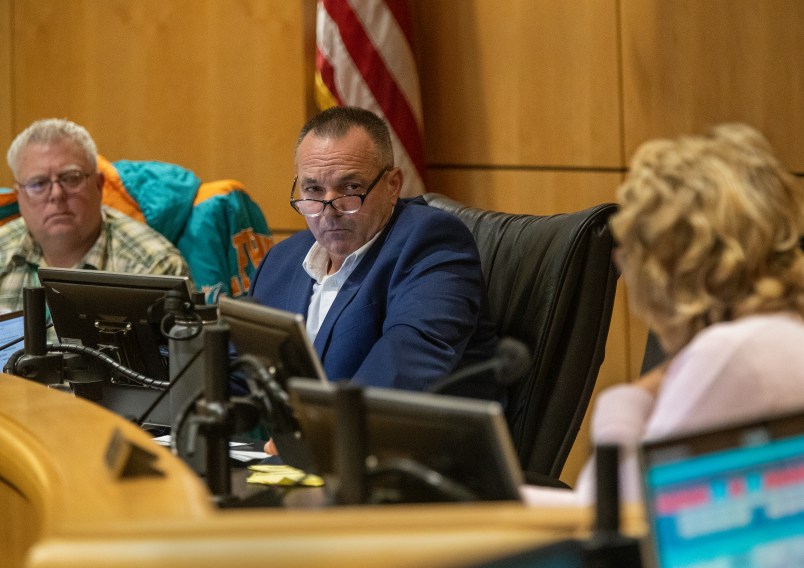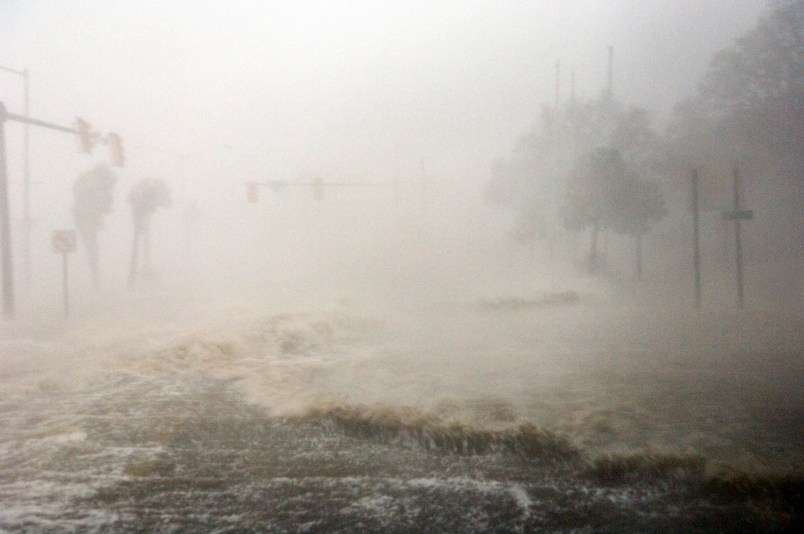Justice Ketanji Brown Jackson made her first oral argument appearance Monday in Sackett v. Environmental Protection Agency, the Supreme Court’s first case of the term. It centers on whether certain wetlands warrant federal government protection.
Jackson was a prominent voice in the proceedings, and was unafraid to tangle both with her fellow justices and with the lawyer representing the Sacketts, the people trying to build on currently protected wetlands near Priest Lake in Idaho.
In one exchange, she jumped in to rebut a lengthy cross examination by Justice Neil Gorsuch. Gorsuch had been building the argument that property owners, bedeviled by EPA standards under the Clean Water Act that grant some wetlands protection but not others, could be exposed to stiff penalties if they unknowingly build on protected lands.
“So if the federal government doesn’t know, how is a person subject to criminal time in federal prison supposed to know?” he asked in a bewildered tone.
Jackson had tried unsuccessfully to jump in during Gorsuch’s questioning, but got her chance to speak after he finished.
“Is there a process by which a homeowner can ask?” she inquired.
Brian Fletcher, deputy U.S. solicitor general, answered in the affirmative, that the Army Corp of Engineers will do a jurisdictional determination for free.
“So you’re not really facing criminal liability without the opportunity to get an assessment from the government regarding your particular circumstances?” Jackson concluded.
She also sparred with the lawyer for the Sacketts, Damien Schiff.
Schiff, echoing Gorsuch (and Justices Samuel Alito and Brett Kavanaugh, who raised similar points about ignorant property owners) in his rebuttal, held forth on the expense of hiring environmental consultants and the general cost and hassle of having to make sure that that land you’re building on is not protected.
Again, Jackson cut in.
“I thought they went into it knowing this might be a wetland,” she said.
Schiff responded that there had been an assessment done by a prior owner determining that the land was a wetland, but said that the Sacketts didn’t know about it.
“Shouldn’t they have gathered information about the property prior to purchasing it?” Jackson asked with a wry chuckle.
“You keep talking about notice and fair notice and property owners not being able to tell or know about this issue,” she said. “I’m just trying to clarify with respect to the Sacketts — there seems to have been a prior determination that the land was wetland before they bought it. And whether or not they knew, they could have known, I presume, so why is this unfair in this situation with respect to the government now asserting that authority?”
Schiff responded that the prior assessment of the land had expired.
Jackson also appeared to have little patience for Schiff’s arguments touching on federalism and states’ rights, centering the congressional intent of the statute behind the EPA’s environmental regulations.
“Why is it that your conception of this does not relate in any way to Congress’ primary objective?” she asked. “Do you dispute that the primary objective stated in the statute…is that Congress cared about making sure that the chemical, physical and biological integrity of the nation’s waters was protected?”
While directed at Schiff, her point summed up the general critique of the right wing justices’ handling of agency cases: ignoring the spirit of the law in favor of parsing the language of the statutes to conclude that Congress wasn’t specific enough in the text. The nondelegation and major questions theories, increasingly favored in the conservative legal sphere to weaken agencies and their ability to regulate, rest on such readings of laws that disregard Congress’ attempts to empower agencies if they don’t meet some amorphous standard of specificity.
Some of Jackson’s conservative peers seemed to be taking that route again, including Gorsuch, who suggested that EPA’s methods to determine which wetlands are protected are opaque and arbitrary. If they can muster enough votes within the six-person conservative supermajority, they’re likely to narrow the definition of which wetlands rate federal protection, which EPA warns will leave them — and the waterways they connect to — vulnerable to pollution and contamination.










